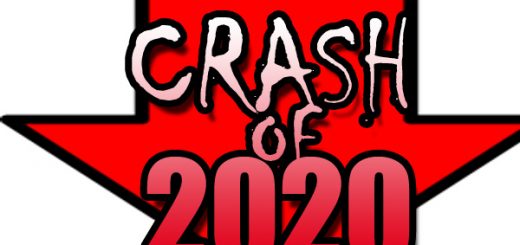Free Speech Advocates Freak Out When Judge Rules Against Them
I visit a lot of different websites and I read and consider many different points of view. That means that I can read the wacky conservative rattle trap of Rush Limbaugh on one side, and then read the latest nutty Liberal wank-a-doodle writings of Michael Moore or any number of MSNBC types. I also read both the major piracy advocate boards and blogs, as well as the anti-piracy groups pronouncements.
One group I often read (and laugh at) are what I call the “absolute free speechers”, or AFS. These are people who feel that their personal right to free speech outweighs and overrules just about everything, apparently including common sense. The very extreme end of it would be something like the Westboro Baptist Church, who clearly feel their rights to protest whatever it is they protest outwieghs people’s rights to a quiet and civilized funeral. Some would say the right to free speech is fundamental to freedom and fundamental to what the US is all about, but taken to the extreme, it’s really just not working out.
One of the biggest apologists for free speech wankers is Mike Masnick from Techdirt. He’s spent more than a decade being an apologist for all sorts of things pretty much on the basis of “technology allows it”, and one of his usual stands is that of free speech over everything else. He’s got his manties in a real knot over a ruling in Europe that puts some sites in a position of being liable for comments on their sites. You have to read his whole post and picture this geeky dude getting all huffy and puffy, sort of like the “leave britney alone” doorknob on Twitter. That’s just how bad the post reads.
The basis of the ruling is actually pretty simple. The European Court ruled that a site, in posting up an article and asking for comments, was liable for the comments made. This is mostly because the site was both commercial in nature (a news site), and integrated the comments into their site. Essentially, the courts saw the acceptance of comments to be about on par with publishing op-eds. The comments were effectively published for financial benefit, and as such, they should have been more careful as to what they published. Their position as a news site additionally might lead credence or support to those comments, so they should have been more careful.
Mike Masnick clearly loses his sh-t on this one.
My feeling of internet comments is pretty simple. If I publish a story on that claims that “Mike Masnick is Sen. Ron Wyden’s secret homosexual lover” (not true, by the way, just an example), I would be liable for making such a claim if it was false or I could not provide reasonable proof. However, if I did the same on an anonymous comment on Mike’s own site, I would be protected by section 230 of the CDA and I would never be personally liable for the comments. Free speech advocates cling to section 230 like a drowning man to a floater. Yet, they don’t ever seem willing to consider that section 230 in the US creates more protections for anonymous speech than for normal personal speech.
It makes even less sense when you consider this scenario. If I went to my local supermarket that has a “free ads” bulletin board and posted up a big sign that said “Mike Masnick was Sen. Wyden’s … (you know the rest)”, they would likely take it down. If they did not take it down, the store would be liable for maintaining that sign in their store. Yet, if I did it on the store’s online website, they would somehow NOT be liable for the exact same content.
Section 230 has created a sort of hiding place for the very worst people in society. They can be disrespectful, they can lie, they can malign people, they can slander them, they can libel them, they can deride them, and they can ruin them – and not be at all liable for the comments. More, the websites that host these comments as part of the discussion also have absolutely no liability for what is published on their sites, because it came from “anonymous third parties”. Yet, the same actions in public (in the real world) would quickly lead to legal action and resolution. Jeb Bush cannot have a bunch of “Hillary Clinton is a hooker” signs all over their campaign stops and claim they were put their by “anonymous commenters”, yet online that is entirely acceptable and reasonable.
Free Speech advocates need to realize that absolute free speech doesn’t work, it conflicts too often with the rights of others. Allowing the internet to be an anonymous slander machine isn’t helping out.











